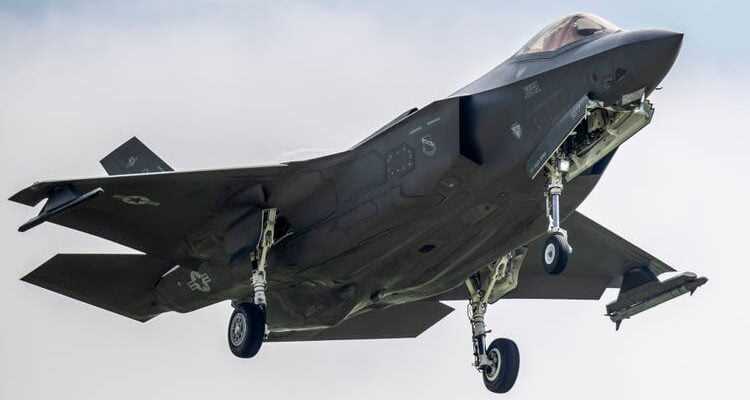Now even from the left camp voices are being raised against the disarmament policy and for an increase in the military budget. The hard core of the army’s opponents, however, do not seem to want to move.
Not only the F-35 fighter jet (here on a test flight in Payerne 2019) is causing debates in Swiss military politics.
“The SP is committed to the abolition of the army”: This is what is written in the party program of the Swiss Social Democratic Party. Disarmament has been a central demand of the left for years. This demand is largely based on the view that a traditional conventional war of aggression does not represent a realistic threat scenario in Europe in the 21st century.
This assumption was refuted with Russia’s unprecedented attack on Ukraine in recent history. In view of the shock of reality triggered by this, the question arises to what extent this requires a change of heart on the part of the pacifists.
Pacifists feel empowered
The SP National Councilor Franziska Roth said to the Nebelspalter last Friday: “I have come to the conclusion that the disarmament of conventional military weapons such as artillery and tanks is currently no longer an option. I admit: We were wrong when we claimed that aggressive territorial wars were not a realistic scenario.” Is this statement exemplary of a major shift in opinion in the pacifist camp?
Lukas Bürgi from the secretariat of the Society for a Switzerland without an army denies this: “We feel strengthened in our pacifism and are sad that it has come to this.” According to Bürgi, Franziska Roth is alone with her opinion. “A pacifist who is suddenly no longer in favor of disarmament is not a real pacifist!”
The GSoA does not believe in the call by FDP President Thierry Burkhart and Federal Councilor Viola Amherd to stop collecting signatures against the procurement of F-35 fighter jets: they continue to support this initiative. According to Bürgi, the war in Ukraine shows that the jet is not the right choice for Switzerland. “Ukraine’s air force did not contribute significantly to the country’s defense because it was eliminated shortly after the war began.” Although the threat situation in Europe has undeniably worsened, a classic attack on Switzerland remains unrealistic and the scenarios for using the F-35 are therefore illusionistic. Instead, according to Bürgi, Switzerland and the rest of Europe should rely on civil and peaceful means such as the UN and the OSCE for defense.
But how are Europe and Switzerland supposed to defend themselves against a Russian invasion without an army? Bürgi replies to this obvious follow-up question: “In this case, on the one hand, one should rely on peaceful means, on the other hand, the pressure from civil society will bring the occupation down.” Actual domination of Europe by the Russian army is not possible anyway, “since it is very difficult to occupy a country that does not want to be occupied”.
When asked what Ukraine should do specifically now, he replies that it should put down military resistance and rely entirely on non-violent means of defense. He also does not support the West supplying arms to Ukraine, since the armament justifies an attack and aggravates the conflict.
The GSoA does not see the demands of the bourgeois parties to increase the military budget to at least one percent of gross domestic product as a political consequence of the security policy turning point in Ukraine, but as an exploitation of the crisis in order to implement long-held political plans.
A divided camp
But the pacifist camp does not seem to be as categorically committed to disarmament as the GSoA’s statements suggest. According to media reports, the Social Democratic members of the Security Policy Commission will meet on March 9 with the aim of giving more weight to the scenario of a territorial war of aggression and therefore to prevent disarmament of the weapons required for this. An upgrade could find a majority in parliament, although the Greens are sticking to their position.
The disarmament advocates see difficulties in defending their own position in the light of the Russian invasion. For example, the long-serving National Councilor of the SP and co-founder of the GSoA, Andreas Gross, repeatedly turned down our request for an interview because he didn’t want to “skewer and ridicule an apparently outdated point of view”. He also emphasizes that the fundamental question we are posing “requires broader and more profound analysis and reflection that cannot be reduced to a few sentences.”
So far, only a few have turned away from the disarmament policy. Still, it remains to be seen how this is emblematic of a larger shift within the movement. In the light of recent events, the peace movement must revise its arguments and explain what a defense of Europe and especially Switzerland should look like using exclusively peaceful means.
